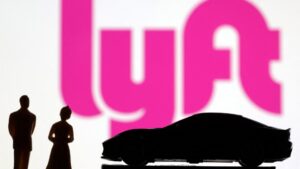Lyft’s Bold Move into Europe: What It Means for the Ride-Hailing Landscape
In a significant expansion announcement, Lyft, the U.S.-based ride-hailing powerhouse, has confirmed its acquisition of the popular European taxi app Free Now. This strategic $199 million (€175 million) deal represents Lyft’s first foray into the European market and is set to close in the latter half of 2025, creating a formidable joint user base of over 50 million annual users.
Free Now: A Quick Overview
Founded in 2009 and initially branded as myTaxi, Free Now operates out of Hamburg, Germany, and has established a strong presence across nine European countries, including Ireland, the U.K., Germany, and France. Since 2019, Free Now has been under the stewardship of the German automotive giants BMW and Mercedes-Benz, which have helped steer it through the competitive ride-hailing terrain.
Beyond traditional taxi services, Free Now diversifies its offerings with mobility solutions including e-scooters, e-mopeds, and e-bikes, making it a versatile player in the burgeoning micro-mobility sector. According to recent company reports, Free Now is already on the path to profitability, boasting earnings positive on an EBITDA basis and generating gross bookings exceeding €1 billion in 2024.
Why This Acquisition Matters
For Lyft, acquiring Free Now is not just about expanding its footprint; it’s also a tactical response to an increasingly crowded European ride-hailing market dominated by Uber, Bolt, and Gett. This move is pivotal, especially considering that Uber has been operating in the U.K. since 2012, giving it a substantial head start. Uber has faced its share of regulatory challenges, but it has managed to maintain its operations through persistent advocacy and adjustments to its business model.
As Lyft prepares to enter this competitive landscape, it will be crucial for the company to navigate the regulatory nuances that come with operating in Europe. The ride-hailing industry is often subject to stringent local regulations, as seen in London, where Uber has faced two attempts to revoke its license due to safety concerns. Having successfully secured a new operating license in 2022, Uber sets a notable precedent for Lyft as it strategizes its entry.
Unique Opportunities Ahead
At Extreme Investor Network, we believe that Lyft’s acquisition of Free Now represents not just an opportunity for growth, but an avenue for innovation in the ride-hailing sector. As consumer preferences shift toward sustainable mobility options, Lyft could leverage Free Now’s diverse offerings to introduce new electric mobility solutions that appeal to environmentally conscious riders.
Moreover, the integration of Free Now’s technology and resources could enhance Lyft’s operational efficiency, paving the way for improved services, reduced wait times, and potentially lower fares—benefits that will resonate well with users in both North America and Europe.
Conclusion
The acquisition of Free Now marks a pivotal turning point for Lyft as it steps onto the European stage, a region rife with potential yet equally filled with challenges. As we anticipate the developments leading up to the completion of this acquisition, it’s clear that Lyft is not merely seeking to grow; it aims to redefine its role in a global landscape increasingly focused on sustainability and innovation.
Stay tuned to Extreme Investor Network as we continue to track this story and what it means for investors and consumers alike. Your source for the latest insights and strategic analysis in the world of finance, we strive to provide value that sets us apart.

